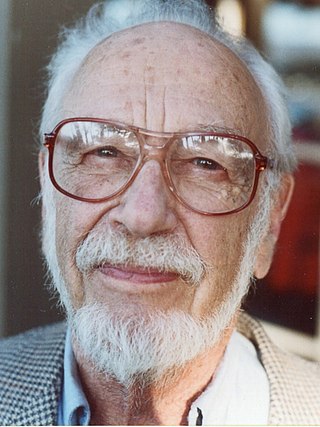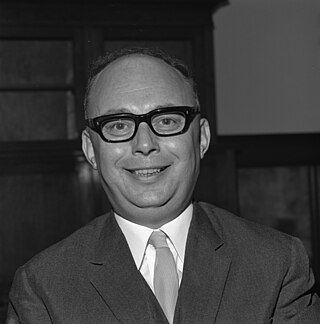
James Joseph Heckman is an American economist and Nobel laureate who serves as the Henry Schultz Distinguished Service Professor in Economics at the University of Chicago, where he is also a professor at the College, a professor at the Harris School of Public Policy, Director of the Center for the Economics of Human Development (CEHD), and Co-Director of Human Capital and Economic Opportunity (HCEO) Global Working Group. He is also a professor of law at the Law School, a senior research fellow at the American Bar Foundation, and a research associate at the NBER. He received the John Bates Clark Medal in 1983, and the Nobel Memorial Prize in Economic Sciences in 2000, which he shared with Daniel McFadden. He is known principally for his pioneering work in econometrics and microeconomics.

Simon Smith Kuznets was an Russian-born American economist and statistician who received the 1971 Nobel Memorial Prize in Economic Sciences "for his empirically founded interpretation of economic growth which has led to new and deepened insight into the economic and social structure and process of development."

David Gale was an American mathematician and economist. He was a professor emeritus at the University of California, Berkeley, affiliated with the departments of mathematics, economics, and industrial engineering and operations research. He has contributed to the fields of mathematical economics, game theory, and convex analysis.

William Jack Baumol was an American economist. He was a professor of economics at New York University, Academic Director of the Berkley Center for Entrepreneurship and Innovation, and Professor Emeritus at Princeton University. He was a prolific author of more than eighty books and several hundred journal articles. He is the namesake of the Baumol effect.

John Quiggin is an Australian economist, a professor at the University of Queensland. He was formerly an Australian Research Council Laureate Fellow and Federation Fellow and a member of the board of the Climate Change Authority of the Australian Government.
Kingsley Davis was an internationally recognized American sociologist and demographer. He was identified by the American Philosophical Society as one of the most outstanding social scientists of the twentieth century, and was a Hoover Institution senior research fellow.
Richard Abel Musgrave was an American economist of German heritage. His most cited work is The Theory of Public Finance (1959), described as "the first English-language treatise in the field," and "a major contribution to public finance thought."

Henri (Hans) Theil was a Dutch econometrician and professor at the Netherlands School of Economics in Rotterdam, known for his contributions to the field of econometrics.
Mohammad Hashem Pesaran is a British–Iranian economist.
The Easterlin paradox is a finding in happiness economics formulated in 1974 by Richard Easterlin, then professor of economics at the University of Pennsylvania, and the first economist to study happiness data. The paradox states that at a point in time happiness varies directly with income both among and within nations, but over time happiness does not trend upward as income continues to grow: while people on higher incomes are typically happier than their lower-income counterparts at a given point in time, higher incomes don't produce greater happiness over time. One explanation is that my happiness depends on a comparison between my income and my perceptions of the average standard of living. If everyone's income increases, my increased income gives a short boost to my happiness, since I do not realize that the average standard of living has gone up. Some time later, I realize that the average standard of living has also gone up, so the happiness boost produced by my increased income disappears. It is the contradiction between the point-of-time and time series findings that is the root of the paradox: while there is a correlation at a fixed point, there is no trend over multiple points. That is, in the short run, everyone perceives increases in income to be correlated with happiness and tries to increase their incomes. However, in the long run, this proves to be an illusion, since everyone's efforts to raise standards of living lead to increasing averages, leaving everyone in the same place in terms of relative income. Various theories have been advanced to explain the Paradox, but the Paradox itself is solely an empirical generalization. The existence of the paradox has been strongly disputed by other researchers.
Marc Leon Nerlove is an American agricultural economist and econometrician and a distinguished university professor emeritus in agricultural and resource economics at the University of Maryland. He was awarded the John Bates Clark Medal from the American Economic Association (AEA) in 1969 and held appointments at eight different universities from 1958–2016. The Clark Medal is awarded to an economist under the age of 40 who “is judged to have made the most significant contribution to economic thought and knowledge”, and when the AEA appointed him as a distinguished fellow in 2012, they cited his development of widely used econometric methods across a range of subjects, including supply and demand, time series analysis, production functions, panel analysis, and family demography.

Morton Owen Schapiro is an American economist who served as the 16th president of Northwestern University from 2009 to 2022.

Nadarajan "Raj" Chetty is an Indian-American economist and the William A. Ackman Professor of Public Economics at Harvard University. Some of Chetty's recent papers have studied equality of opportunity in the United States and the long-term impact of teachers on students' performance. Offered tenure at the age of 28, Chetty became one of the youngest tenured faculty in the history of Harvard's economics department. He is a recipient of the John Bates Clark Medal and a 2012 MacArthur Fellow. Currently, he is also an advisory editor of the Journal of Public Economics. In 2020, he was awarded the Infosys Prize in Economics, the highest monetary award recognizing achievements in science and research, in India.
Bernard Marinus Siegfried van Praag is a Dutch economist, and distinguished university professor at the University of Amsterdam, noted for researching the measurement of welfare, as well-being and happiness.
Albert K. Ando was a Japanese-born economist.

Burton A. Weisbrod is an American economist who pioneered the theory of option value, and the theory of why voluntary nonprofit organizations exist, He also developed the methodology for valuing voluntary labor. He advanced methods for benefit-cost analysis of public policy by recognizing the roles of externality effects and collective public goods in program evaluation. He applied those methods to the fields of education, health care, poverty, public interest law, and nonprofit organization. Over a career of fifty years, he published 16 books and over 200 scholarly articles. He is currently the Cardiss Collins Professor of Economics Emeritus and a Fellow of the Institute for Policy Research at Northwestern University.
Dorothy Elizabeth Stahl Brady was an American mathematician and economist. She was a professor of economics at Wharton School of the University of Pennsylvania from 1958 to 1970.
Selma Evelyn Fine Goldsmith (1912–1962) was an American economic statistician who accurately estimated the personal income distribution of Americans.
Eugene Smolensky is an economist and emeritus professor at the Goldman School of Public Policy, University of California, Berkeley, where he served as Dean from 1988 to 1997.








